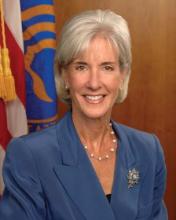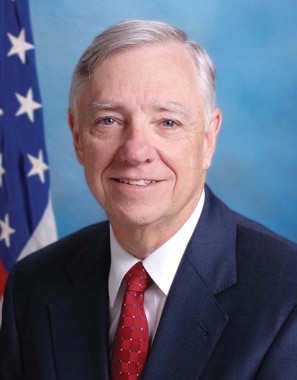User login
Got a better way to deliver and pay for health care? If so, the feds have a billion dollars worth of grants you can apply for.
The $1 billion is the second round of Health Care Innovation Awards from the Center for Medicare and Medicaid Innovation (CMMI), a division of the Centers for Medicare and Medicaid Services.
"We’re seeking out innovative practices that have a high likelihood of delivering better care and lower costs on a national scale," Kathleen Sebelius, Health and Human Services secretary, said in a press briefing.
The first round of awards "welcomed a wide range of proposals," but this year’s awards focus "very directly on identifying and testing new payment models to support the service delivery models funded by this initiative," Dr. Richard Gilfillan, CMMI director, said during the briefing.
CMMI is seeking proposals in four specific areas:
• Models that are designed to rapidly reduce outpatient and/or post–acute care costs under Medicare, Medicaid, or the Children’s Health Insurance Program (CHIP). Such models might address diagnostic services, outpatient radiology, physician-administered drugs, home-based services, and postacute care, Dr. Gilfillan said.
• Models that improve care for specific populations, such as high-cost pediatric populations, children in foster care, and children at high risk for dental disease, as well as patients with Alzheimer’s disease, HIV/AIDS, or serious mental illness.
• Models that transform financial and clinical models for specialists who treat patients with complex medical needs.
• Models that improve population health – either geographically (health of a community), clinically (health of those with specific diseases), or socioeconomically – through prevention, wellness, and comprehensive care beyond the clinic.
Awardees have 3 years to demonstrate their projects. In this second round, they must have the payment model operational at some point during that period, Dr. Gilfillan said.
The CMMI has the authority to expand any program nationally if it looks like it is producing savings.
Republican members of Congress have been seeking progress reports on the first round of innovation grants, but Dr. Gilfillan said it was too early to say whether any of the models were saving money, or how much they might be saving.
To apply for a grant, submit a letter of intent by June 28. An application must follow and will be accepted from June 14 until Aug. 15. All applications must include "design of a payment model that is consistent with the new service delivery model that they propose," according to the CMS. Awards will be announced in January 2014.
More information can be found at the CMMI web page.
On Twitter @aliciaault
Got a better way to deliver and pay for health care? If so, the feds have a billion dollars worth of grants you can apply for.
The $1 billion is the second round of Health Care Innovation Awards from the Center for Medicare and Medicaid Innovation (CMMI), a division of the Centers for Medicare and Medicaid Services.
"We’re seeking out innovative practices that have a high likelihood of delivering better care and lower costs on a national scale," Kathleen Sebelius, Health and Human Services secretary, said in a press briefing.
The first round of awards "welcomed a wide range of proposals," but this year’s awards focus "very directly on identifying and testing new payment models to support the service delivery models funded by this initiative," Dr. Richard Gilfillan, CMMI director, said during the briefing.
CMMI is seeking proposals in four specific areas:
• Models that are designed to rapidly reduce outpatient and/or post–acute care costs under Medicare, Medicaid, or the Children’s Health Insurance Program (CHIP). Such models might address diagnostic services, outpatient radiology, physician-administered drugs, home-based services, and postacute care, Dr. Gilfillan said.
• Models that improve care for specific populations, such as high-cost pediatric populations, children in foster care, and children at high risk for dental disease, as well as patients with Alzheimer’s disease, HIV/AIDS, or serious mental illness.
• Models that transform financial and clinical models for specialists who treat patients with complex medical needs.
• Models that improve population health – either geographically (health of a community), clinically (health of those with specific diseases), or socioeconomically – through prevention, wellness, and comprehensive care beyond the clinic.
Awardees have 3 years to demonstrate their projects. In this second round, they must have the payment model operational at some point during that period, Dr. Gilfillan said.
The CMMI has the authority to expand any program nationally if it looks like it is producing savings.
Republican members of Congress have been seeking progress reports on the first round of innovation grants, but Dr. Gilfillan said it was too early to say whether any of the models were saving money, or how much they might be saving.
To apply for a grant, submit a letter of intent by June 28. An application must follow and will be accepted from June 14 until Aug. 15. All applications must include "design of a payment model that is consistent with the new service delivery model that they propose," according to the CMS. Awards will be announced in January 2014.
More information can be found at the CMMI web page.
On Twitter @aliciaault
Got a better way to deliver and pay for health care? If so, the feds have a billion dollars worth of grants you can apply for.
The $1 billion is the second round of Health Care Innovation Awards from the Center for Medicare and Medicaid Innovation (CMMI), a division of the Centers for Medicare and Medicaid Services.
"We’re seeking out innovative practices that have a high likelihood of delivering better care and lower costs on a national scale," Kathleen Sebelius, Health and Human Services secretary, said in a press briefing.
The first round of awards "welcomed a wide range of proposals," but this year’s awards focus "very directly on identifying and testing new payment models to support the service delivery models funded by this initiative," Dr. Richard Gilfillan, CMMI director, said during the briefing.
CMMI is seeking proposals in four specific areas:
• Models that are designed to rapidly reduce outpatient and/or post–acute care costs under Medicare, Medicaid, or the Children’s Health Insurance Program (CHIP). Such models might address diagnostic services, outpatient radiology, physician-administered drugs, home-based services, and postacute care, Dr. Gilfillan said.
• Models that improve care for specific populations, such as high-cost pediatric populations, children in foster care, and children at high risk for dental disease, as well as patients with Alzheimer’s disease, HIV/AIDS, or serious mental illness.
• Models that transform financial and clinical models for specialists who treat patients with complex medical needs.
• Models that improve population health – either geographically (health of a community), clinically (health of those with specific diseases), or socioeconomically – through prevention, wellness, and comprehensive care beyond the clinic.
Awardees have 3 years to demonstrate their projects. In this second round, they must have the payment model operational at some point during that period, Dr. Gilfillan said.
The CMMI has the authority to expand any program nationally if it looks like it is producing savings.
Republican members of Congress have been seeking progress reports on the first round of innovation grants, but Dr. Gilfillan said it was too early to say whether any of the models were saving money, or how much they might be saving.
To apply for a grant, submit a letter of intent by June 28. An application must follow and will be accepted from June 14 until Aug. 15. All applications must include "design of a payment model that is consistent with the new service delivery model that they propose," according to the CMS. Awards will be announced in January 2014.
More information can be found at the CMMI web page.
On Twitter @aliciaault


